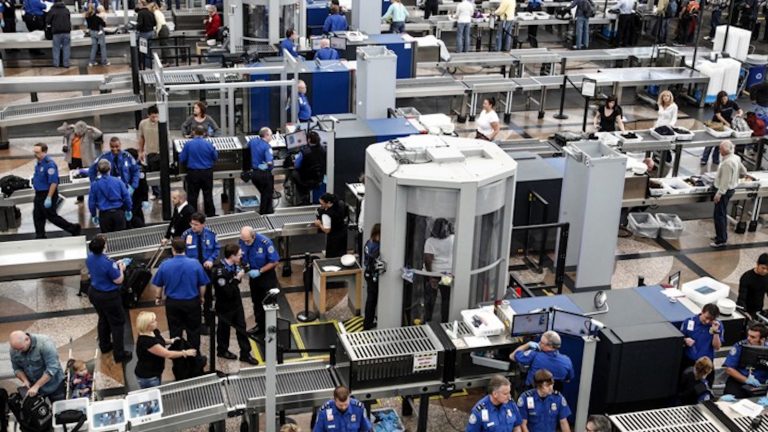As President Trump makes history once again as we embark on the longest Federal shutdown to date, he may have another opportunity to make a mark on his presidency by handling disobedient TSA agents who are refusing to show up to work despite monetary concessions made by TSA administrative officials.
As the shutdown continues, certain federal employees have been sent home while others, such as those who work for the Transportation Security Agency, have been ordered to show up to work without pay until the Federal government opens back up.
A large number of TSA agents have, as a result, refused to show up to work to protest the shutdown. A recent piece at the New York Times discussing this debacle informed readers that while the impact of the lack of agents is nowhere near severe, certain airports have had to close down terminals temporarily, and TSA officials have been meeting behind closed doors with airline officials to try and coax them into making some financial transactions in order to compensate the agents. Over the weekend, leadership at the TSA agreed to pay employees a full days wages and a $500 bonus to make them happy, but some agents are saying that isn’t enough.
While a good chunk of the country has always hated the TSA, this shutdown has proven that even with a smaller force showing up to work, the airways are safe and travel continues. The security theater has become more transparent as a result, and the complaining agents may have won some small battles for now, but potentially hurt their credibility in the long run. When dealing with a President known to shoot from the hip, the odds of causing a ruckus and beating Donald Trump may not seem like the best idea especially when you work for perhaps the most unpopular organization in the United States.
Still, President Trump hasn’t publicly commented on the TSA agents’ behavior thus far, which might be good for them since public servants have a bad history of attempting to go toe-to-toe with Republican administrations.
In the Boston Police Riots during Calvin Coolidge’s first term as Governor of Massachusetts, Boston policemen refused to show up to work and protested in order to demand higher pay and more days off (also refusing to patrol black neighborhoods). As a result, the criminal element of the city went on a rampage filled with looting, assault, and a string of arsons. Coolidge activated the state militia and after the dust cleared, put a lifetime hiring ban on all protesting police officers. He then filled their jobs with veterans returning from WWI. Coolidge additionally decided to raise wages, add benefits such as free uniforms, and other perks after listening to more practical police officials in spite of the controversy. Coolidge would comment on the situation stating “there is no right to strike against the public safety by anybody, anywhere, any time.” This situation prompted Coolidge to national prominence and foreshadowed the attitude of his presidency years after handling the riot.
Decades later during the Reagan administration, the air traffic controller union PATCO went on strike, causing a national emergency as American air travel was virtually put to a halt for several days. Reflecting on Coolidge’s tough decision during the police riots, Ronald Reagan issued a warning to protesters saying they had 48 hours to return to work, or they would be fired immediately and a lifetime hiring ban would be placed on them as well. By the time the strike was over, PATCO was decertified and 11,000 employees were fired. In his diary, Reagan wrote regarding the strike, “how do they explain approving of law-breaking—to say nothing of violation of an oath taken by each a.c. [air controller] that he or she would not strike?” As Bryan Craig from the Miller Center at the University of Virginia put it, “Reagan took no joy in doing it, however. The law was the law, and he believed public safety workers had no right to strike.”
Both leaders showed that even in times of inconvenience or hardship, no public servant has the right to take selfish action that puts public safety at risk. While study after study from all sides of the aisle shows that the impact of the TSA on public safety is almost non-existent, President Trump would have every right as Commander in Chief to make any call he wanted over the careers of any public servant whose lack of work ethic or care would potentially hinder or harm the public.
From a libertarian view, this shutdown and the response from these angered TSA agents further shows the inability of the TSA to do their job when the chips are down, much less keep the public safe.














TSA was started as a jobs program. It has been a joke from its outset.Lets allow uslim-free airlines, and the rest get strip-searched like now